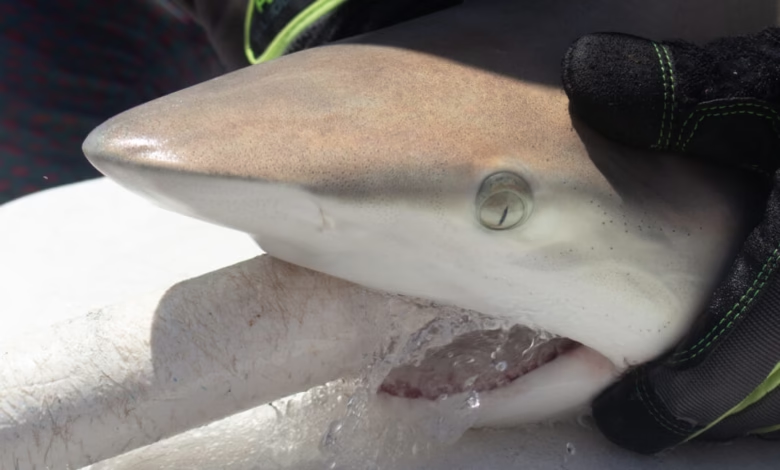
▼ Summary
– The research team aboard the RV Garvin struggled to catch sharks despite using bait, with lines often returning empty or with half-eaten remains.
– The Garvin was originally a dive boat used for wreck exploration and later for teaching low-income students scuba diving before being sold after the owner’s death.
– Catherine MacDonald, a PhD student, highlighted inclusivity issues in scientific fieldwork by writing “no assholes” on a Post-it note.
– David Shiffman noted that field science, especially involving popular large animals like sharks, often lacks inclusivity due to high demand for such roles.
– The article underscores the challenges of both shark research and the broader culture of exclusivity in scientific fieldwork.
The sun beat down on the Research Vessel Garvin as frustration mounted among the crew. What began as an enthusiastic shark-tagging expedition off Miami’s coast had turned into hours of disappointment, empty hooks and picked-over bait coming back aboard instead of the prized specimens everyone hoped to study. Scientists, marine biology enthusiasts, and even the author of Why Sharks Matter exchanged worried glances as their window for meaningful research narrowed with each unsuccessful cast.
Fieldwork often reveals unexpected challenges, and this day proved no exception. The Garvin itself carried a unique history, originally a dive boat exploring East Coast shipwrecks before transitioning into an educational vessel for underprivileged students. After its previous owner passed away, the aging boat found new purpose under the guidance of Catherine MacDonald, a University of Miami PhD candidate with a clear vision for inclusive science.
MacDonald’s approach stood in stark contrast to the often exclusionary culture plaguing field research. While coordinating a summer internship program, she made her priorities unmistakable, scribbling “no assholes” on a Post-it as a blunt reminder. Her colleague David Shiffman, the marine biologist behind Why Sharks Matter, echoed the sentiment. “Science hasn’t always been known for fostering supportive environments,” he noted. “When you add the allure of working with charismatic megafauna like sharks, competition can breed toxicity. People tolerate poor treatment because they fear losing their spot to someone else.”
As the team regrouped, the stakes felt higher than just another day on the water. Their mission, to gather critical data while proving that collaborative, respectful fieldwork could thrive, depended on perseverance. With dwindling bait and fading light, they prepared for one last attempt, hoping the sharks would finally cooperate.
(Source: Ars Technica)